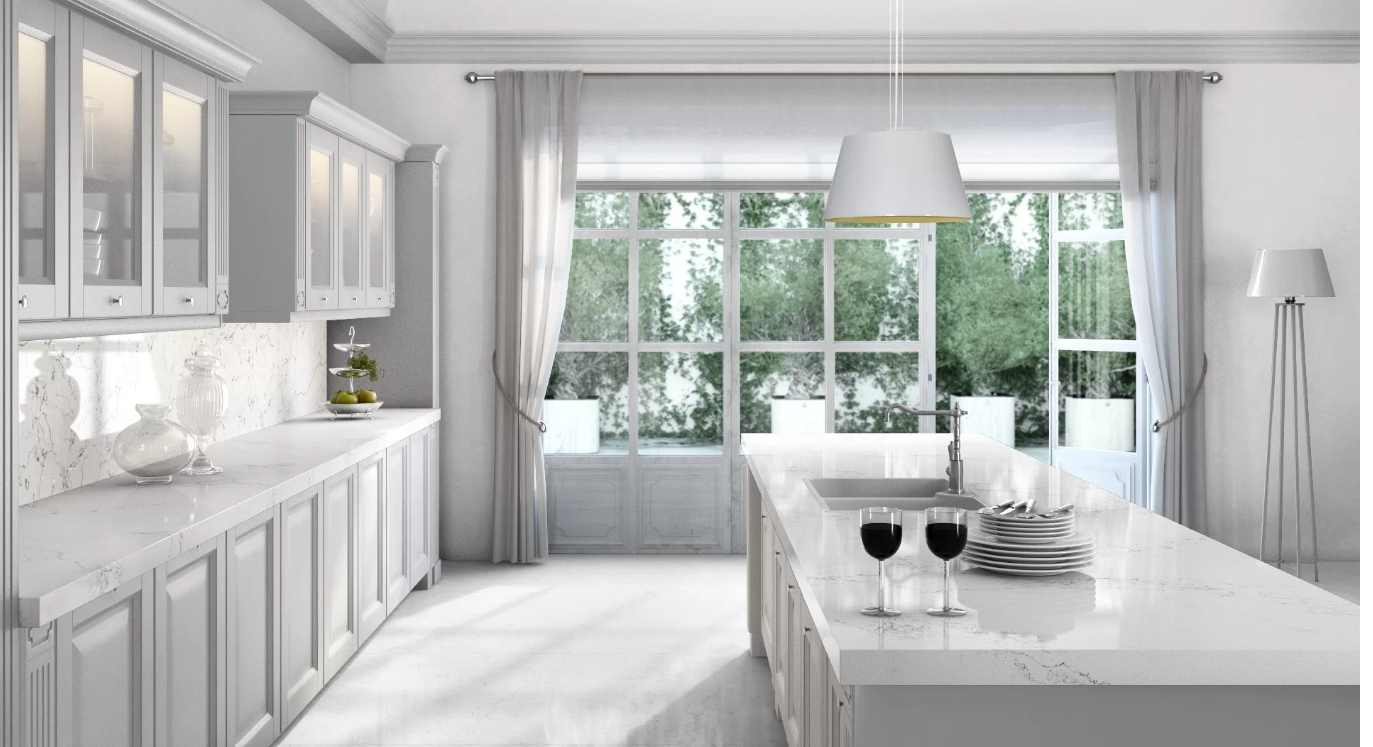- September 3, 2024
- 0
- Quartz
Comparing Quartz Countertops to Marble: A Practical Guide

Comparing Quartz Countertops to Marble: A Practical Guide
- Appearance-
Marble: Distinguished by its inherent beauty, marble possesses an enduring allure due to its distinct veining and sophisticated patterns. Because every marble slab is unique, it has an opulent and timeless appearance.
Quartz: A variety of colors and designs, including some that resemble marble, are available in engineered quartz. Quartz slabs appear uniform, giving a more constant appearance than marble.
- Durability-
Marble: Unlike quartz, marble is softer and more porous, which makes it more prone to stains, chipping, and scratches. To keep its surface safe from harm, sealing is necessary on a regular basis.
Quartz: Quartz is extremely durable and non-porous. More so than marble, it is a more sensible option for high-traffic areas like kitchens since it is more resilient to stains, chipping, and scratches.
- Cost-
Marble: Usually more costly than quartz, particularly for premium slabs with distinctive veining. It’s important to think about how much marble will cost to maintain over time.
Quartz: Generally speaking, quartz is less expensive than marble and strikes a fair compromise between price, look, and durability. Its value is increased by the lower maintenance costs as well.
- Maintenance-
Marble: Usually more costly than quartz, particularly for premium slabs with distinctive veining. It’s important to think about how much marble will cost to maintain over time.
Quartz: Generally speaking, quartz is less expensive than marble and strikes a fair compromise between price, look, and durability. Its value is increased by the lower maintenance costs as well.
- Environmental Impact-
Marble: A naturally occurring stone, marble is extracted from the earth by mining, which has a big effect on the environment. But because of its durability, there is less need for replacement.
Quartz: Despite being constructed, quartz is more environmentally friendly because it is made of resin and leftover natural stone. Additionally, some producers provide recycled-material quartz countertops that are environmentally beneficial.
- Resale Value-
Marble: Often connected to luxury, marble can raise your home’s resale value, especially in upscale neighborhoods.
Quartz: Increases the value of your house as well, particularly because of its low maintenance and long lifespan. Even though it might not be as prestigious as marble, many customers find it to be a compelling feature.
